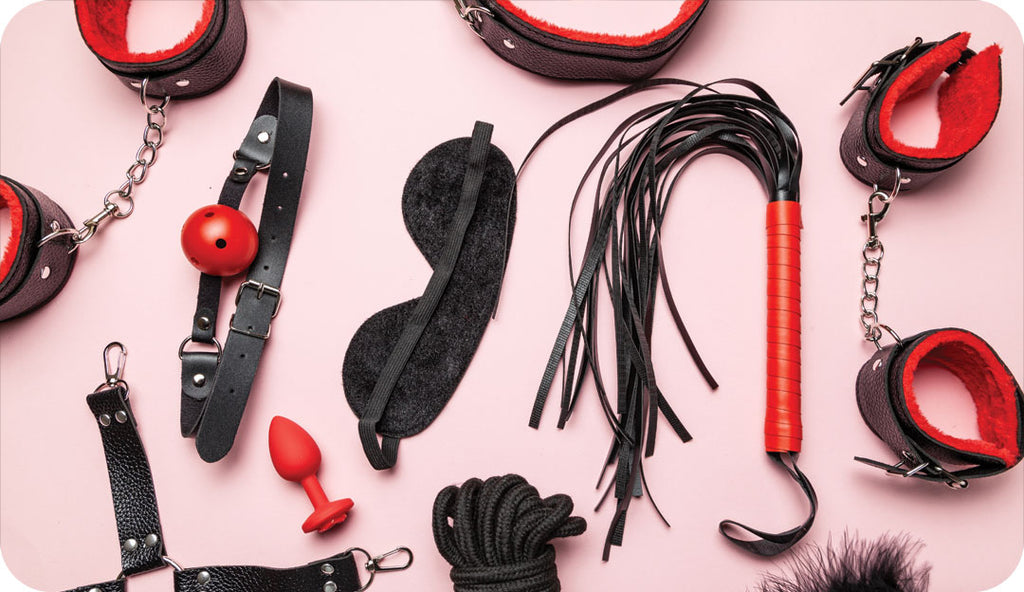Consult just about any resource on relationships and you’ll probably hear that it’s an absolute no-no to keep any sort of secret from your partner, no matter how innocent. That’s somewhat true, as anyone in a healthy relationship should feel free to speak candidly with their partner on pretty much any topic. However, honesty is just like anything else in that it’s totally possible to have too much of a good thing.
While it’s really never OK to lie to your partner, you don’t necessarily need to tell them everything either. In fact, some things are better kept to oneself. The following are just a few shining examples of secrets allowed in relationships. Do any of the following sound familiar?
1. Your Sexual Past
While it’s true that you should make your partner aware of any medical concerns you might have because of your sexual past and vice versa, that’s really where the dialogue about your sexual history should stop. There’s no reason to tell someone you’re dating the gritty details of your past sexual escapades and rarely will anything good come from talking about it. Even if it comes up in conversation sometime, it’s really best to adopt a “don’t ask, don’t tell” policy on the subject.
2. That You’ve Had Better
Maybe your partner really is the best you’ve ever had, but maybe they’re not even close. If it’s the latter, it’s probably best you keep this a secret in your relationship. No one really likes to hear that they’re the second, third, or tenth best on someone’s running list. All it will do is make them feel bad about themselves and harm your relationship in the long run. Also, it should go without saying that you shouldn’t demand to know where you rank either.
3. How You Spend Your Disposable Income
If you live together and have shared expenses, it only stands to reason that you’ll share some of your finances as well and that’s as it should be. However, it’s healthy to have a few financial boundaries in place as well. For instance, you should each have a separate account in addition to any joint accounts you share for personal expenses or little splurges you want to make. You don’t necessarily have to tell your partner about every overpriced latte or pair of designer tennis shoes you buy. Of course, if your private spending eventually starts to harm your joint finances, you should definitely have a discussion, but beyond that, it’s really your call.
4. Things You Miss About Your Ex
Talking about your ex too much is never a good idea, but there’s absolutely zero point in going on about all the ways your ex was better. Hearing that someone else was better in bed, better at entertaining, a better cook, or more popular with your family isn’t going to make your current partner rise to the occasion and try harder to make you happy. It’s only going to upset them and make them feel “less than”. Remember, your relationship with your ex ended for a reason. Glean whatever wisdom you can from that situation, move on, and keep your attention on your current relationship where it belongs.
5. Your “Alone Time” Quirks
Every last one of us does odd, quirky things when we’re all by ourselves and it’s unlikely you’re any different. Maybe you like to eat entire boxes of doughnuts in the nude when you’ve had a rough day at work. Maybe you love masturbating in the shower with a 12-inch vibrating dildo no one else knows about. Whatever the case may be for you, you don’t necessarily need to tell your partner about those things. What you like to do when you’re all by yourself is really nobody’s business but your own.
6. Small Dating Doubts You Might Have
Even if you’re in the best relationship of your life, there will still be occasional moments that leave you questioning whether or not it should even continue. Everyone has minor doubts from time to time, but there’s no need to tell your partner about them unless they actually get stronger and more persistent over time. All it will do is hurt their feelings and make them feel insecure about their relationship with you. Yes, you should absolutely talk out bigger issues or hurtful incidents in your relationship, but smaller gripes or worries are better kept a secret.
7. Your Dislike of a Family Member or Friend
This is something you might feel it’s better to be up front about, but it’s actually really important that you keep it to yourself. Most people are very protective of their family members or good friends and it’s unlikely your partner is any different. They’re not going to take it very well if you’re too candid about your negative feelings toward their brother, uncle, parents, or lifelong bestie. No, you don’t have to lie outright and claim to love the person. It is a wise move to simply keep this a secret in your relationship though. If the friend or family member in question eventually shows their true colors, you can look forward to being a source of support and understanding.
8. Unchangeable Qualities of Theirs You Dislike
This is another instance where 100% bare-bones honesty is probably not the best policy if you’re truly interested in keeping the peace in your relationship. We’re not talking about undesirable qualities someone should be looking to change, like chronic dishonesty or addiction. We’re talking about that goofy laugh of theirs you don’t really like, their new haircut, or that world-famous chili recipe of theirs that you’re not so fond of – things that they can’t necessarily do anything about. If you really like this person, it’s definitely advisable to spare their feelings and keep this a secret in your relationship.
9. How Hot You Find Their Friend
We get it. Sometimes the person you’re dating has a seriously hot friend. Appreciating that friend’s hotness in a subtle, respectful way is even a healthy, human thing to do. Telling your partner all about how hard or wet they make you is a really bad move though. No one really likes being told that their significant other finds their friend “hot”. They won’t be able to help but wonder just how hot you find the person. If they feel really insecure about it, it might eventually lead to bad blood between not only you and your partner, but your partner and their friend. No, you can’t help being attracted to someone, but you can help whether or not you act on those feelings or open your mouth about it. If you love your partner, focus on making them feel valued, adored, and completely irreplaceable instead.
10. Passing Thoughts of Self-Hatred
Even the most confident among us occasionally has a bad day that leaves us doubting ourselves or feeling less than. It’s also fine to express some of those feelings to your partner. That’s part of why you’re in a relationship in the first place. Unconditional support, acceptance, and encouragement when you really need it. Don’t make a habit of constantly getting down on yourself though. If self-doubt and feelings of inadequacy are constants for you to the point where it’s hard to feel anything else, it might be time to talk to your doctor about it.
11. Your Family’s or Friends’ Dislike of Them
It happens to even the best of us at times. A good friend or family member really doesn’t like someone we’re dating for whatever reason and they decide to tell us so one day. How you deal with what that person said is between you and them. But repeating it to your partner is a pretty bad move that can only cause trouble. It’s honestly pretty hurtful when someone important in your partner’s life reacts negatively to your relationship with them. In fact, it’s hurtful enough that your partner may try to distance themselves from your social circle or family as a result, so definitely tread carefully.
12. Your Private Fantasies
Sharing a private fantasy with a partner can be a wonderful way to build intimacy. If your partner is down with the idea of making that fantasy come true, it can be a great way to spice up your sex life as well. However, you’re under no obligation to share those things unless you really want to. Your partner doesn’t necessarily need to know about everything (or everyone) you fantasize about when you masturbate or when you’re daydreaming. At the end of the day, deciding what to tell your partner and what to keep to yourself is largely about common sense, so always apply your best judgment and all will be well.























